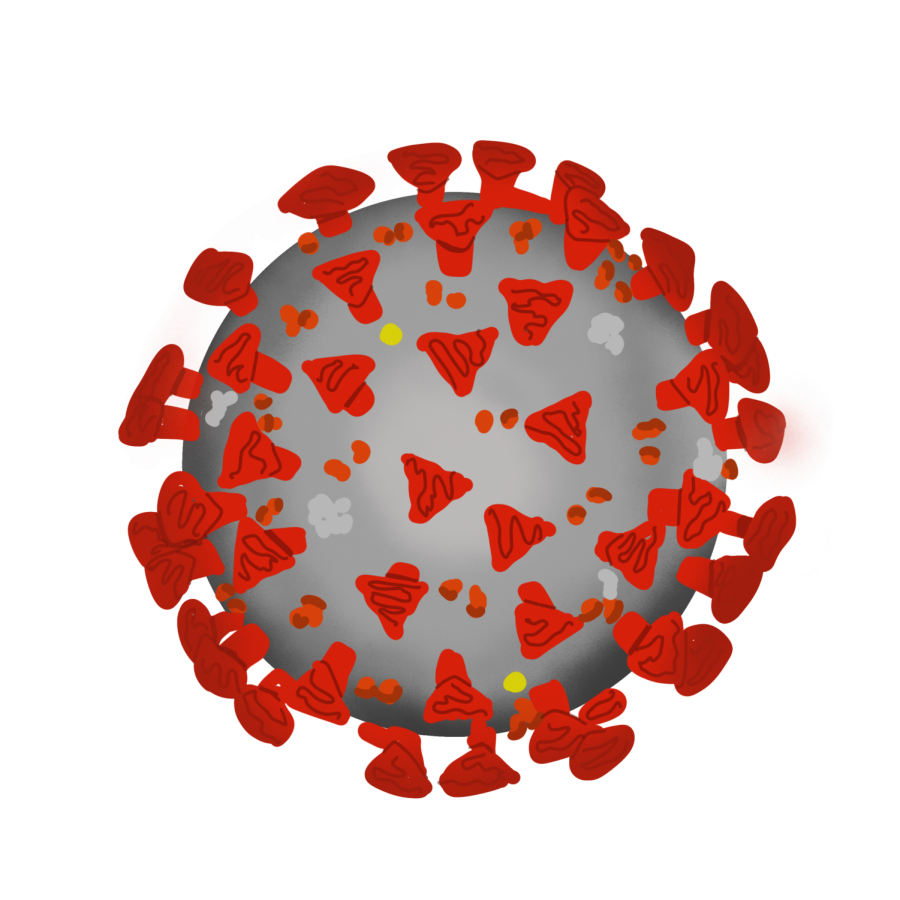Course spotlight: Wildlife and Emerging Diseases (BIOL 309)
September 16, 2020
Questions About COVID-19
As the University and its students adjust to our new normal amidst the novel coronavirus pandemic, many of us have grown curious about how diseases such as COVID-19 begin. What causes or creates such infectious diseases? Why are some diseases more communicable than others? Is COVID-19 likely to mutate and resurface again in humans, becoming a perennial nuisance to the public health?
Professor of Biology DeeAnn Reeder teaches BIOL 309 – Wildlife and Emerging Diseases at the University. The class focuses on infectious diseases of zoonotic or animal origin, such as COVID-19. Holistically, the course covers many topics relating to this type of disease, including the basis of disease ecology in wildlife, the dynamics of emerging infectious diseases that come from wildlife, the characteristics of immunology and virology, a survey of major decisions relating to infectious disease and an assessment of where the field is heading in the future.
Wildlife and Emerging Diseases
Although this course is primarily concerned with strictly scientific literature and resources — as can be expected of any biology course — Reeder also intentionally incorporates current news and readings into the course load. Reeder hopes that students will be able to understand these diseases from multiple perspectives, ranging from evolutionary, physiological, biogeographical, anthropological and medical viewpoints. Another goal of this course is for students to be able to understand this information and articulate it to others, a particularly useful skill during a time when the COVID-19 pandemic — and misinformation about the same — continues to pervade our everyday lives.
Since 2013, Reeder has taught this class once every year, during the fall semester. The course is usually classroom-based, and focused on lectures, group activities and both formal assessments (tests) and oral assessments (presentations); however, due to COVID-19, BIOL 309 is naturally being taught remotely this fall. Despite this new remote format, Reeder is still working hard to ensure each student is capable of evaluating both scientific and nature reports, as well as understanding the relationship between wildlife and how such diseases occur by the end of the semester.
Reeder explained how the content of the course “changes dramatically every year, depending upon what the dominant pandemics are that year (Ebola, Influenza and now COVID-19). There is a huge emphasis on the disease ecology of COVID-19 this year and the bat coronavirus/SARS-CoV-2 (the virus that causes human COVID-19) story is being used to explain multiple topics.”
Another new adjustment to the course, based on our current global and national political landscape, is a weekly “media report.” This project encourages University students to identify misinformation surrounding the pandemic, evaluating the information based on their existing knowledge from the course. “The new assignment is called ‘Fact or Crap’ (after the board game),” Reeder said, “and students generate polls for fellow students to answer to determine whether something seen in the news is true. It’s a great way to practice how to evaluate the merits of a given finding or statement — with the goal of determining if it is reliable or ‘fake news.’”
Future of Coronavirus?
Many wonder if the pandemic could have been prevented or if it was an inevitable reality of our modern world. Reeder believes that humans actually hold a significant degree of responsibility for the spread of disease, for which consequences persist to this day.
Yet despite this fact, Reeder remains hopeful. “Spillover of pathogens from wildlife to humans is the direct result of human activities,” Reeder said. “Thus we have many options to minimize the risk.”
In assessing the future of our predicament, Reeder is optimistic that vaccines will pass their Phase 3 trials soon, and that a vaccine will be widely available in the future. “We will emerge from COVID-19 with a recognition of the consequences of our actions and our use and abuse of the environment,” Reeder said. As courses like BIOL 309 illuminate, it is important for students to not only continually increase their knowledge, applicability, and awareness of real-world problems, but also to form an opinion and be able to articulate those opinions about current issues to others. Through being informed, students can work towards a future in which we are better equipped to handle new situations and problems — such as COVID-19 — more readily.






















